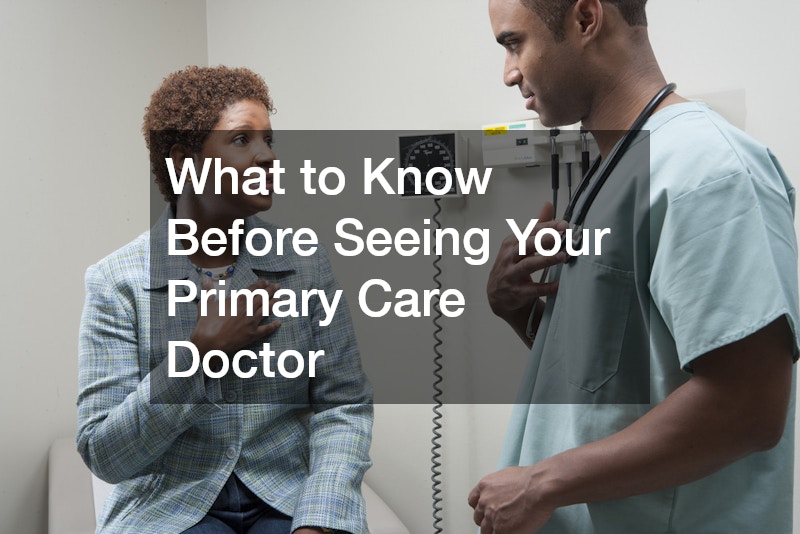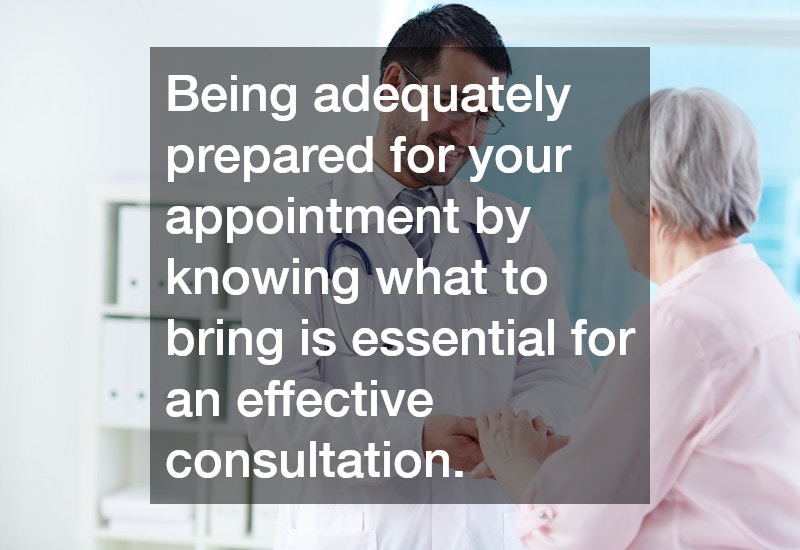
Visiting your primary care doctor can be an essential part of maintaining good health. To make the most out of your appointment, it’s important to be prepared. This article will guide you through what to know before seeing your primary care doctor, addressing common concerns and questions.
How Do I Prepare for My Appointment?
Before visiting your primary care doctor, it’s crucial to gather all necessary medical information to ensure comprehensive care. Start by creating a health history summary that includes details about any past surgeries, chronic conditions, and family medical history. This summary not only provides essential insights to your doctor but also helps highlight any patterns that may be relevant to your current health.
Preparation for your appointment also involves a review of all ongoing medications, including over-the-counter drugs and supplements. Keeping a detailed list of your medications ensures that there are no potential interactions and allows your doctor to make informed decisions regarding your treatment. Additionally, record any symptoms or health concerns you’re experiencing, as these notes will help guide your discussion and make it more focused.
Creating a Health History Summary
A detailed health history summary can help your doctor understand your past medical information, current medications, and any ongoing health concerns. Documenting this information in advance allows for a smoother consultation process, minimizing the likelihood of overlooking critical details. Constructing an organized and concise summary reflects your active role in managing your health.
Having a thorough health history summary is particularly important for new patients visiting a primary care doctor. It establishes a solid foundation for your medical records and provides a baseline for future consultations and potential treatments. Mentally reviewing and recording any significant health events before your visit ensures that concerns are not forgotten during the appointment.
What Questions Should I Ask During My Visit?
Your appointment is an ideal opportunity to clarify any health-related uncertainties you may have. To make the most of this time, consider preparing a list of essential questions covering various aspects of your health and treatment plan. Inquiring about different treatment options allows you to understand the potential paths forward and actively participate in your healthcare decisions.
Moreover, asking questions related to disease prevention and lifestyle recommendations can significantly enhance your quality of life. Discuss any potential lifestyle changes your doctor might suggest, such as alterations in diet or exercise habits, to promote long-term health benefits. Don’t hesitate to seek clarification on any medical terms or treatment plans that are confusing or unclear.
Essential Questions for Your Primary Care Doctor
Make a list of essential questions to ask your doctor regarding your health conditions, treatment options, and lifestyle recommendations. This list enables you to cover all bases during your appointment, ensuring you leave with clarity and confidence in your health management. Being proactive in asking questions further strengthens the doctor-patient relationship and fosters mutual understanding.
How Often Should I See My Primary Care Doctor?
The frequency of visits to your primary care doctor is generally tailored based on several factors, including age, gender, and medical history. Regular check-ups are important for maintaining health and preventing chronic diseases, with annual visits recommended for most adults. For those with existing health conditions or risk factors, appointments may be more frequent to monitor and manage their health effectively.
Younger adults in good health might benefit from a biennial or even triennial visit schedule, depending on their lifestyle and risk factor profile. However, changes in personal health status, lifestyle, or family medical history may necessitate more frequent consultations. Candid discussions with your primary care doctor about your health risks can help establish an appropriate visit schedule tailored to your needs.
What Should I Bring to My Appointment?
Being adequately prepared for your appointment by knowing what to bring is essential for an effective consultation. Start by compiling all necessary personal documents and medical records. Having your insurance information, identification, and any relevant health records readily available streamlines the check-in process and facilitates a smoother experience overall.
In addition to documentation, bring a current list of all medications, including prescriptions, OTC medications, and supplements. This list should detail dosage and frequency to ensure accurate records and avoid any potential drug interactions. Being transparent about your medication intake allows your doctor to provide the best possible advice for managing your healthcare needs.
Checklist of Essential Items
Prepare a checklist of essential items to bring to your appointment, such as identification, insurance information, and a current list of medications. Ensuring these essentials are gathered beforehand eliminates unnecessary delays and allows the focus to remain on the primary purpose of your visit. By organizing your documentation and information, you can devote more time to discussing health-related issues with your doctor.
By following these guidelines and preparing accordingly, you can ensure a more productive and efficient visit with your primary care doctor. Remember, staying informed about your health and proactively communicating with your healthcare provider are vital steps in managing your well-being. Maintaining an open line of communication and being actively involved in your healthcare decisions can enhance overall health outcomes and quality of life.


